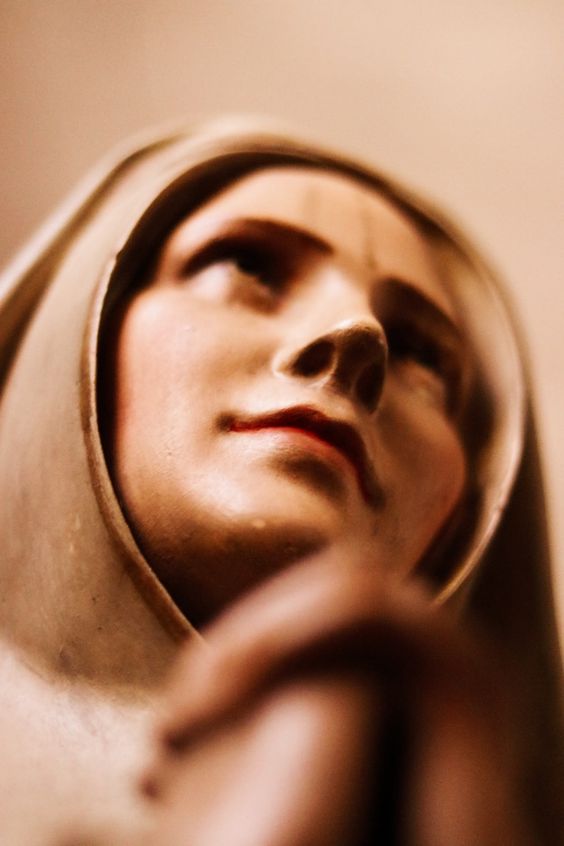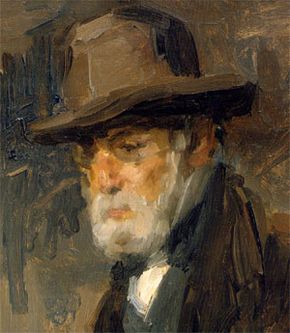
As we approached
the inn at Amherst, the Clockmaker grew uneasy. "It's pretty well on in
the evening, I guess," said he, "and Marm Pugwash is as onsartin in her
temper as a mornin' in April; it's all sunshine or all clouds with her,
and if she's in one of her tantrums she'll stretch out her neck and hiss
like a goose with a flock of goslin's. I wonder what on airth Pugwash
was a-thinkin' on when he signed articles of partnership with that are
woman; she's not a bad lookin'
piece of furniture, neither, and it's a proper pity sich a clever woman
should carry sich a stiff upper lip. She reminds me of our old minister
Joshua Hopewell's apple-trees.
"The
old minister had an orchard of most particular good fruit, for he was a
great hand at buddin', graftin', and what not, and the orchard (it was
on the south side of the house) stretched right up to the road. Well,
there were some trees hung over the fence, I never seed such bearers:
the apples hung in ropes, for all the world like strings of onions, and
the fruit was beautiful. Nobody touched the minister's apples, and when
other folks lost their'n from the boys, his'n always hung there like
bait t' a hook, but there never was so much as a nibble at 'em. So I
said to him one day, 'Minister,' said I, 'how on airth do you manage to
keep your fruit that's so exposed, when no one else can't do it nohow?'
'Why,' says he, 'they are dreadfully pretty fruit, ain't they?' 'I
guess,' said I, 'there ain't the like on 'em in all Connecticut.'
'Well,' says he, 'I'll tell you the secret, but you needn't let on to no
one about it. That are row next the fence, I grafted it myself: I took
great pains to get the right kind. I sent clean up to Roxberry and away
down to Squawneck Creek.' I was afeard he was a-goin' to give me day and
date for every graft, bein' a terrible long-winded man in his stories;
so says I, 'I know that, minister, but how do you preserve them?' 'Why, I
was a-goin' to tell you,' said he, 'when you stopped me. That are
outward row I grafted myself with the choicest kind I could find, and I
succeeded. They are beautiful, but so etarnal sour, no human soul can
eat them. Well, the boys think the old minister's graftin' has all
succeeded about as well as that row, and they sarch no further. They
snicker at my graftin', and I laugh in my sleeve, I guess, at their
penetration.'
"Now,
Marm Pugwash is like the minister's apples, very temptin' fruit to look
at, but desperate sour. If Pugwash had a watery mouth when he married, I
guess it's pretty puckery by this time. However, if she goes to act
ugly, I'll give her a dose of 'soft sawder' that will take the frown out
of her frontispiece and make her dial-plate as smooth as a lick of
copal varnish. It's a pity she's such a kickin' devil, too, for she has
good points, good eye, good foot, neat pastern, fine chest, a clean set of limbs, and carries a good - But here we are. Now you'll see what 'soft sawder' will do."
When we entered the
house, the travelers' room was all in darkness, and on opening the
opposite door into the sitting-room we found the female part of the
family extinguishing the fire for the night. Mrs. Pugwash had a broom in
her hand, and was in the act (the last act of female housewifery) of
sweeping the hearth. The strong flickering light of the fire, as it fell
upon her tall, fine figure and beautiful face, revealed a creature
worthy of the Clockmaker's comments.
"Good evening,
marm," said Mr. Slick. "How do you do? and how's Mr. Pugwash?" "He!"
said she: "why, he's been abed this hour. You don't expect to disturb
him this time of night, I hope?" "Oh, no," said Mr. Slick, "certainly
not, and I am sorry to have disturbed you, but we got detained longer
than we expected; I am sorry that..." "So am I," said she, "but if Mr. Pugwash will keep an inn when he has no occasion to, his family can't expect no rest."
Here the
Clockmaker, seeing the storm gathering, stooped down suddenly, and,
staring intently, held out his hand and exclaimed: "Well, if that ain't a
beautiful child! Come here, my little man, and shake hands along with
me. Well, I declare, if that are little feller ain't the finest child I
ever seed. What, not abed yet? Ah, you rogue, where did you get them are
pretty rosy cheeks? Stole them from mama, eh? Well, I wish my old
mother could see that child, it is such a treat. In our country," said
he, turning to me, "the children are all as pale as chalk or as yaller
as an orange. Lord! that are little feller would be a show in our
country. Come to me, my man." Here the "soft sawder" began to operate.
Mrs. Pugwash said, in a milder tone than we had yet heard, "Go, my dear,
to the gentleman; go, dear." Mr. Slick kissed him, asked him if he
would go to the States along with him, told him all the little girls
would fall in love with him, for they didn't see such a beautiful face
once in a month of Sundays. "Black eyes, let me see, - ah,
mama's eyes, too, and black hair also; as I am alive, you are mama's
own boy, the very image of mama." "Do be seated, gentlemen," said Mrs.
Pugwash. "Sally, make a fire in the next room." "She ought to be proud
of you," he continued. "Well, if I live to return here, I must paint
your face, and have it put on my clocks, and our folks will buy the
clocks for the sake of the face. Did you ever see," said he, again
addressing me, "such a likeness between one human and another, as
between this beautiful little boy and his mother?" "I am sure you have
had no supper," said Mrs. Pugwash to me; "you must be hungry, and weary,
too. I will get you a cup of tea." "I am sorry to give you so much
trouble," said I. "Not the least trouble in the world," she replied; "on
the contrary, a pleasure."
We were then shown
into the next room, where the fire was now blazing up, but Mr. Slick
protested he could not proceed without the little boy, and lingered
behind to ascertain his age, and concluded by asking the child if he had
any aunts that looked like mama.
As the door closed
Mr. Slick said, "It's a pity she don't go well in gear. The difficulty
with those critters is to git them to start: arter that there is no
trouble with them, if you don't check 'em too short. If you do they'll
stop again, run back and kick like mad, and then Old Nick himself
wouldn't start 'em. Pugwash, I guess, don't understand the natur' of the
crittur; she'll never go kind in harness for him. When I see a child,"
said the Clockmaker, "I always feel safe with these women-folk; for I
have always found that the road to a woman's heart lies through her
child."
"You seem," said I,
"to understand the female heart so well, I make no doubt you are a
general favorite among the fair sex." "Any man," he replied, "that
understands horses has a pretty considerable fair knowledge of women,
for they are jist alike in temper, and require the very identical same
treatment. Encourage the timid ones, be gentle and steady with the
fractious, but lather the sulky ones like blazes.
"People talk an
everlastin' sight of nonsense about wine, women and horses. I've bought
and sold 'em all, I've traded in all of them, and I tell you there ain't
one in a thousand that knows a grain about either on 'em. You hear
folks say, Oh, such a man is an ugly-grained critter, he'll break his
wife's heart; jist as if a woman's heart was as brittle as a pipe-stalk.
The female heart, as far as my experience goes, is jist like a new
india-rubber shoe: you may pull and pull at it till it stretches out a
yard long, and then let go, and it will fly right back to its old shape.
Their hearts are made of stout leather, I tell you; there's a plaguy
sight of wear in 'em.
"I never knowed but
one case of a broken heart, and that was in t'other sex, one Washington
Banks. He was a sneezer. He was tall enough to spit down on the heads
of your grenadiers, and near about high enough to wade across
Charlestown River, and as strong as a tow-boat. I guess he was somewhat
less than a foot longer than the moral law and catechism, too. He was a
perfect pictur' of a man; you couldn't fault him in no particular, he
was so just a made critter; folks used to run to the winder when he
passed, and say, 'There goes Washington Banks; beant he lovely!' I do
believe there wasn't a gal in the Lowell factories that warn't in love
with him. Sometimes, at intermission, on Sabbath-days, when they all
came out together (an amazin' handsom' sight, too, near about a whole
congregation of young gals), Banks used to say, 'I vow, young ladies, I
wish I had five hundred arms to reciprocate one with each of you; but I
reckon I have a heart big enough for you all; it's a whopper, you may
depend, and every mite and morsel of it at your service.' 'Well, how you
do act, Mr. Banks!' half a thousand little clipper-clapper tongues
would say, all at the same time, and their dear little eyes sparklin'
like so many stars twinklin' of a frosty night.
"Well,
when I last seed him he was all skin and bone, like a horse turned out
to die. He was teetotally defleshed, a mere walkin' skeleton. 'I am
dreadful sorry,' says I, 'to see you, Banks, lookin' so peaked. Why, you
look like a sick turkey-hen, all legs! What on airth ails you?' 'I'm
dyin', says he, 'of a broken heart.' 'What!' I says I, 'have the gals
been jiltin' you?' 'No, no,' says he; 'I beant such a fool as that,
neither.' 'Well,' says I, 'have you made a bad speculation?' 'No,' says
he, shakin' his head, 'I hope I have too much clear grit in me to take
on so bad for that.' 'What under the sun is it, then?' said I. 'Why,'
says he, 'I made a bet the fore part of the summer with Leftenant Oby
Knowles that I could shoulder the best bower of the Constitution
frigate. I won my bet, but the anchor was so etarnal heavy that it broke
my heart.' Sure enough, he did die that very fall; and he was the only
instance I ever heard tell of a broken heart."

Slick’s wise-cracking commentary on the colonial life of Nova Scotia and relations with the U.S. and Britain struck a note with readers, which lead to a second series in 1838 and a third in 1840. The satirical sketches, mocking both Canadians and Americans, made Haliburton one of the most popular writers of comic fiction in English of that era. The Clockmaker, which was also translated into German, established Haliburton as one of the founders of North American humour. As Arthur Scobie notes in The Canadian Encyclopedia, The Clockmaker stories, "proved immensely popular and, ironically, have influenced American humour as much as Canadian."






